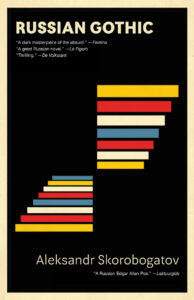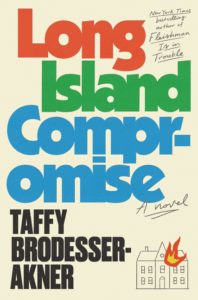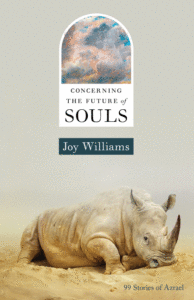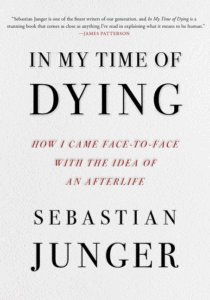
5 Book Reviews You Need to Read This Week
“Suicide: It’s a sin. Yet the M*A*S*H theme song, at certain moments, seems to drift from this book’s spine.”
Our basket of brilliant reviews this week includes Emma Alpern on Taff Brodesser-Akner’s Long Island Compromise, Dwight Garner on Joy Williams’ Concerning the Future of Souls, Zain Khalid on Percival Everett’s James, Ed Vulliamy on Sebastian Junger’s In My Time of Dying, and Boris Fishman on Aleksandr Skorobogatov’s Russian Gothic.
Brought to you by Book Marks, Lit Hub’s home for book reviews.
*
“The zaniness, judgmental eye, and intermittent bursts of sincerity you’ll find in her profiles are all here. So are the many markers of her prose style (lists separated by ‘and,’ rather than commas, for example, and a generous sprinkling of exclamation points). All that familiar energy should keep the story, and the reader, moving along, but at times the novel exhausts itself. It can seem a little like a machine that won’t power down even after it has started smoking … The pathos-filled siblings can be very funny…but there’s a predetermined quality to their personalities that feels less than human. There’s not much free will in Brodesser-Akner’s world … The more time you spend with each character, the more delusional they seem to be, even as a sense of novelistic sympathy wells. Brodesser-Akner’s magpie style, layering a hum of worry with dialogue and voice-mails and scenes from mobile-phone games, has a singsongy appeal, but it can be difficult to sustain such a high-strung voice over nearly 500 pages …
In a somewhat notorious Tablet article from 2015 called ‘I Probably Won’t Share This Essay on Twitter,’ Brodesser-Akner argued against the idea of Jewish privilege in light of the 2014 Gaza war. In some ways, this is a book-length meditation on that argument, passed around from character to character. In Long Island Compromise, an antisemitic co-worker rolls his eyes when Nathan brings up the Holocaust; Jenny does the same when her grandmother does. Ah, that old idea: the naïve young Jew who sides with the oppressor. To the book’s credit, it doesn’t exactly settle on that trope, making way for an imperfect denouement that gives the older generation its own demons. It’s not an ultimately satisfying end, but it mostly works—its own kind of compromise.”
–Emma Alpern on Taff Brodesser-Akner’s Long Island Compromise (Vulture)
“Blasphemous? In Williams’s fiction, nearly everything she values is a) too important to take entirely seriously and b) fair game for sharp but mostly playful abuse. The abuse is proof of her love. Don DeLillo said it in Underworld, and I feel it keenly in my own life: The highest currency that can pass between certain friends is ‘the stand-up scorn that carries their affections’ … Williams, who turned 80 this year, resembles Mark Twain in the wildcat nature of her literary scorn. One of the best things about Twain’s nonfiction is that he will stop everything and criticize the hell out of a bird or a plant, deliver an absolute drubbing, simply because it happens to be in front of him…Williams writes with more feeling about nature than any writer I know—or, at least, with more feeling than any writer whose preciousness doesn’t make me want to refund my lunch into my shirt pocket—but like Twain she knows there are more weirdos in the natural world than Audubon can count …
This is practically a book of poetry … Williams distills a lot of learning—about philosophy, aesthetics, metaphysics and morality—into her vignettes … Running almost silently below the loneliness and the silky comedy in these stories is the sense, down on earth, of acidifying oceans, species loss and space junk crashing Muskily down from the cosmos. Why write a book of meditations on Azrael? Perhaps because, as Williams notes, so many souls are suddenly trying to leave their bodies before their time, because the portents have grown dire. Suicide: It’s a sin. Yet the M*A*S*H theme song, at certain moments, seems to drift from this book’s spine.”
–Dwight Garner on Joy Williams’ Concerning the Future of Souls (The New York Times)
“Publishing often resembles a dating agency, with writers, editors, and agents attempting to match aesthetic, moral, and political supplies to their corresponding demands. Close your eyes and imagine a warehouse full of sectionals, all of them taupe. Everett has refused the ready-made object, too busy building gardens out of heavy metal, deserts out of phosphorous, anything to avoid artistic stasis. Regrettably, in his latest novel, James, the writer’s ego has outstripped his curiosity, perhaps because it is the first of his novels intended to be manifest, discernible, and aimed at an audience …
Everett’s novel is an attempt to give Jim a different voice, to reanimate him in accordance with Everett’s own understanding. He throws out Jim’s reality, replacing the thoughts and hopes behind Jim’s eyelids with his own, curtailing them as he sees fit. Formally, Everett abandons his trademark and discursive polyphony for aphorisms … The book eventually reads like a monologue delivered to what the actor knows will be a sympathetic audience. Similarly, the dialogue is too self-aware and uninterested in what Jacques Rancière suggests is the artist’s responsibility, which is to reveal ‘what can’t be seen, what lies beneath the visible.’ In James, the artist’s responsibility is rehabilitative, so many passages serve to rectify an imaginary ledger … it’s all too perfect for an adaptation, almost certainly written with that eventuality in mind. One hopes Everett, the writer, has not replaced the tyranny of his own mind with those in the darkened gallery, the movie theater.”
–Zain Khalid on Percival Everett’s James (Bookforum)
“Many people who admire Junger’s fine and famous writing may think that this articulate testimony to, and meditation upon, afterlife signifies him having lost his marbles. Or maybe he hallucinated and came up with a piece of beautifully written mumbo-jumbo…Well, let them. This is a moving, compact, philosophically ambitious, theological and scientific meditation of raw honesty and a necessary endeavor at a time when atheist materialism verges on hegemony among intellectuals in western society … Junger’s meditations entwine spirituality with the very physics—which become metaphysic—with which his forebears dismissed the spirit or soul. The first and last sections of the book are a wonderful excursion through the work and world of his family, Einstein, Heisenberg, Bohr et al, on the ‘vastness’ whence we came and to which we return. But on the way, Junger takes us on a journey of inquiry without answers; by definition, this is his one story the factcheckers cannot corroborate …
By sharing his story and reflections so honestly, Junger becomes a literary Charon, on this side of the River Styx, but with a view of the far bank. Closing the book after a second reading, you stare out at whatever is beyond the window—a grey, bland cityscape—to realize its weird value, and that we are all subject to the whim of chance and nature, our lives determined (and oddly enriched) by death, ‘on its terms,’ writes Junger, rather than ours.”
–Ed Vulliamy on Sebastian Junger’s In My Time of Dying: How I Came Face to Face with the Idea of an Afterlife (The Guardian)

“The Soviet-Afghan war comes up only once in Russian Gothic, a slim novel by the Belarus-born Aleksandr Skorobogatov that first appeared in 1991 and has just been published in translation in the United States. But that single, radioactive reference transforms our experience of the story from a private disturbance to a commentary on a nation. (The novel’s new title in English, fluffed up from the more prosaic Russian title, Sergeant Bertrand, seems to invite the enlargement.) The effect is both a gift and a curse: Russia’s troubled history amplifies the novel’s echo, but the country’s literary lineage makes for a tough comparison … Skorobogatov imagines Nikolai’s mania as a kind of psychic call-and-response, with echoes of events that stylishly elide whether they are taking place in real life or in Nikolai’s tortured brain … This kind of literary patterning and ambiguity can feel familiarly clever. But this novel’s infernal distinction is that these moments recall the many times over the last century that Russians have had to see what isn’t there, and not see what was.”
–Boris Fishman on Aleksandr Skorobogatov’s Russian Gothic (The New York Times Book Review)
Book Marks
Visit Book Marks, Lit Hub's home for book reviews, at https://bookmarks.reviews/ or on social media at @bookmarksreads.
























